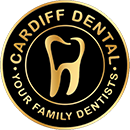Wisdom Tooth Problems: Signs and Symptoms

In most cases, wisdom teeth—also referred to as third molars—appear in the late teens or early 20s.
These teeth were once vital for our ancestors, who consumed more challenging foods, but modern diets and dental practices often make them unnecessary and problematic.
Many people experience issues with their wisdom teeth due to their late arrival and the limited space in their jaws.
Recognising the warning signs and symptoms of wisdom tooth issues is essential to preserving oral health and acting promptly.
What Are Wisdom Teeth?
Wisdom teeth are the 3rd and last molars to develop, and they may partially or fully erupt in people aged 17 to 25.
Most adults have four wisdom teeth in each corner of the mouth—two on top and two on the bottom.
However, not everyone develops all four, and some may never develop any at all.
Why Do Wisdom Teeth Cause Problems?
Several factors contribute to wisdom tooth problems, including:
- Lack of Space: Most people’s jaws must be more significant to accommodate extra molars. This lack of space can cause the teeth to become impacted, meaning they cannot fully emerge or align properly.
- Positioning: Wisdom teeth can grow at various angles, including horizontally, leading to misalignment and crowding of other teeth.
- Partial Eruption: When a wisdom tooth partially penetrates the gum, it creates an entryway for bacteria to invade, leading to infection and gum disease.
- Difficulty Cleaning: Due to their position at the back of the mouth, wisdom teeth can be challenging to clean correctly, increasing the risk of cavities and gum disease.
Common Signs and Symptoms of Wisdom Tooth Problems
Recognising the warning signs and symptoms of wisdom teeth issues is critical to schedule timely dental care.
Here are some common indicators that you might be experiencing problems with your wisdom teeth:
Pain and Discomfort
Pain is the most common symptom associated with wisdom tooth problems.
This pain can manifest in various ways:
- Toothache: Persistent, dull, or sharp pain at the back of the mouth.
- Jaw Pain: Pain in the jaw can occur if the wisdom teeth exert pressure on other teeth or nerves.
- Earache or Headache: Pain can radiate from the impacted teeth to other areas of the head, causing ear aches or headaches.
Swelling and Inflammation
Swelling around the jaw and gums is another common sign of wisdom tooth problems.
In the affected location, redness and discomfort may also accompany this swelling. In severe cases, the swelling may extend to the cheeks and neck.
Infection
When the wisdom teeth become impacted, they form a flap of gum tissue that tends to trap foods and bacteria.
Pericoronitis is an infection that may result from this.
Symptoms of infection include:
- Red, Swollen Gums: Gums around the affected tooth may become inflamed and tender.
- Bad Breath: Halitosis that persists is suggestive of infection.
- Pus Discharge: Sometimes, pus may be present around the infected tooth.
- Fever: Fever may also occur if the infection progresses to become invasive.
Cysts and Tumours
Occasionally, impacted wisdom teeth result in the formation of cysts or tumours.
If not treated, these cysts are fluid-filled sacs that may eventually erode the jawbone, teeth, and nerves.
Though uncommon, tumours can be severe and may sometimes require surgery to remove them.
Difficulty Opening the Mouth
If you have trouble opening your mouth or shifting your jaw, impacted wisdom teeth may be the cause.
This condition, known as trismus, can occur when the muscles around the affected tooth become inflamed or if the tooth presses against a nerve.
Bleeding Gums
Gums that bleed easily, mainly when brushing or flossing, can signify wisdom tooth problems.
A gum tissue infection or inflammation around the wisdom teeth could cause this bleeding.
Damage to Nearby Teeth
Impacted wisdom teeth can exert pressure on adjacent teeth, leading to damage.
This can result in the following issues:
- Crowding: Your bite may be affected by crowding and other teeth becoming out of alignment due to the pressure from wisdom teeth.
- Cavities: Impacted wisdom teeth can create hard-to-clean areas that become breeding grounds for bacteria, increasing the risk of cavities in neighbouring teeth.
- Resorption: In severe cases, the roots of neighbouring teeth can start to resorb or dissolve due to the pressure from impacted wisdom teeth.
When to See a Dentist
If you experience any of the symptoms mentioned above, it is essential to consult a dentist or oral surgeon.
Pain and discomfort can be reduced, and more severe consequences can be avoided with early management.
Here are some specific situations when you should seek dental care:
- Persistent Pain: If you have ongoing pain in your jaw, gums, or teeth, it’s crucial to see a dentist to determine the cause.
- Swelling and Inflammation: Significant swelling, significantly if it extends to your neck or cheeks, warrants immediate attention.
- Signs of Infection: Symptoms such as fever, pus discharge, and severe lousy breath indicate an infection that needs prompt treatment.
- Difficulty Eating or Opening Mouth: A dentist can examine you and determine the best course of action if you have trouble opening your mouth to eat or drink.
Diagnosis and Treatment
Diagnosing wisdom tooth problems typically involves a thorough dentist or oral surgeon examination.
This may include:
- Dental X-rays: X-rays help visualise teeth’ position and condition and impact on surrounding structures.
- Physical Examination: The dentist will examine your teeth, gums, and jaw to identify signs of infection, swelling, or misalignment.
Based on the diagnosis, treatment options may include:
1. Monitoring
The dentist may recommend regular monitoring if your wisdom teeth are not causing immediate problems. This involves periodic X-rays and check-ups to ensure the teeth are not developing issues.
2. Medicines
For the treatment of mild infections or symptoms of inflammation, the dentist may recommend antibiotics or painkillers. However, this is usually a temporary solution and further treatment may be necessary.
3. Extraction
Wisdom tooth extractions are the most popular form of treatment for troublesome teeth. An oral surgeon or general dentist can perform this treatment, extracting one or more wisdom teeth.
There are primarily two kinds of extractions:
- Simple Extraction: When a tooth erupts ultimately, it is frequently extracted with local anaesthetic using a straightforward technique.
- Surgical Extraction: A surgical extraction may be required for impacted or partially erupted teeth. This more complex procedure may involve cutting into the gum and removing bone to access the tooth.
Recovery and Aftercare
After wisdom tooth extraction, proper aftercare is essential to guarantee a painless recovery and avoid difficulties.
Here are some tips for post-extraction care:
- Follow Dentist’s Instructions: Adhere to all post-operative instructions from your dentist or oral surgeon.
- Manage Pain and Swelling: Use prescribed pain medications and apply ice packs to reduce swelling.
- Maintain Oral Hygiene: Avoid vigorous brushing near the extraction site and rinse the area gently with salt water to keep it clean.
- Watch Your Diet: Eat only soft foods; anything hot, spicy, or crunchy could aggravate the extraction site.
- Rest and Hydrate: To aid recovery, get lots of sleep and drink enough water.
Many people experience significant discomfort and dental problems due to wisdom teeth.
To seek timely dental care and avoid more serious concerns, it is imperative to recognise the signs and symptoms of wisdom tooth issues.
If you experience pain, swelling, infection, or other symptoms related to your wisdom teeth, don’t hesitate to consult a dentist or oral surgeon.
Wisdom Teeth Removal in Cardiff
Early diagnosis and appropriate treatment can help maintain oral health and ensure a more comfortable and trouble-free experience with wisdom teeth.
At Cardiff Dental, we take great pride in treating our patients and keeping their smiles healthy and beautiful.
Call (02) 4954 6888 or make an appointment online.
Visit us at 30 Veronica Street in Cardiff.
